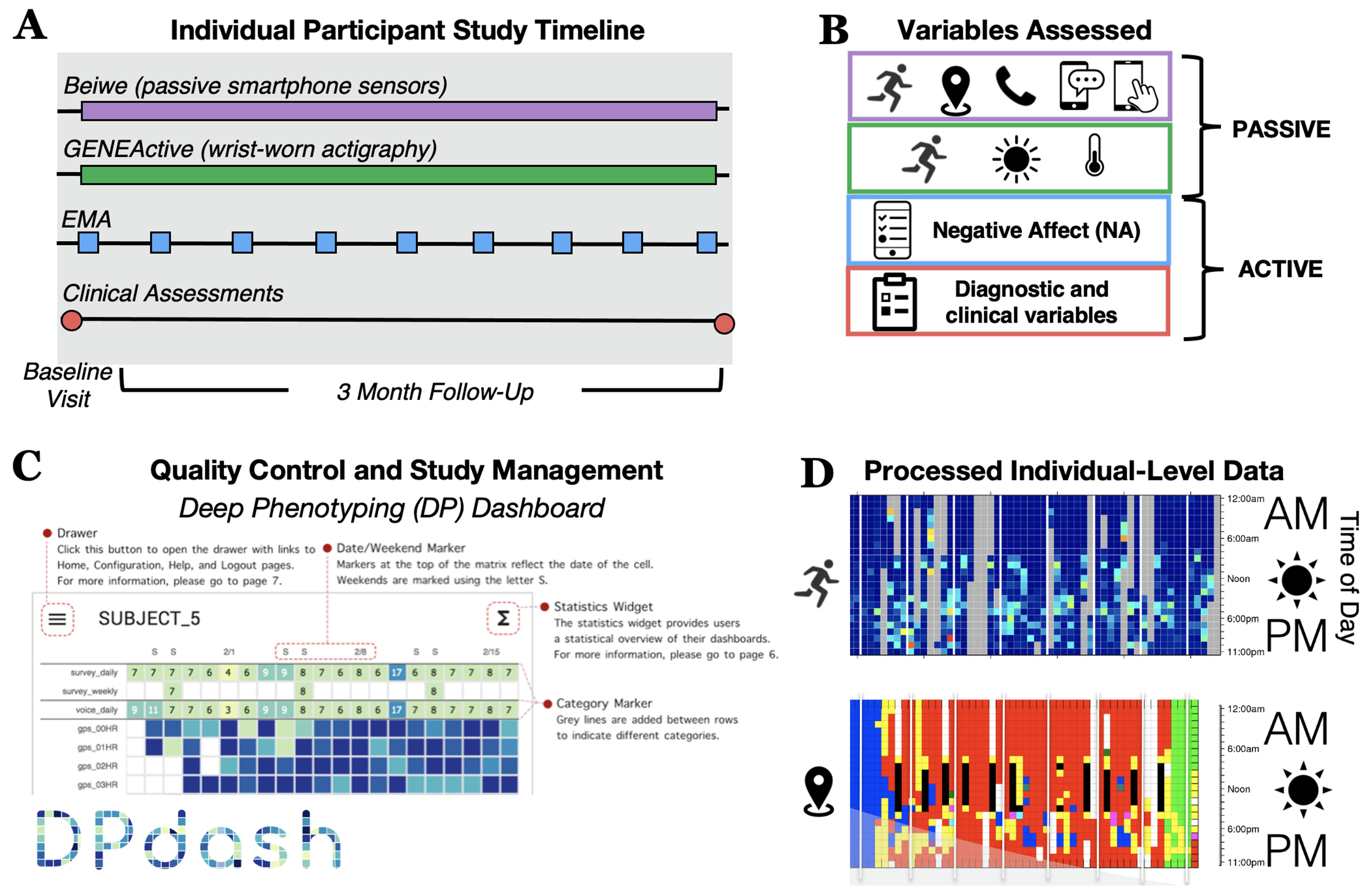app-Based mindfulness training for teen rumination
Is mindfulness training via a smartphone app effective in reducing rumination in adolescents? Which adolescents benefit most from these apps? What types of meditation practices are most effective, and for whom? In collaboration with Dr. Lori Hilt, Cambridge Health Alliance, and the Center for Healthy Minds at the University of Wisconsin-Madison, we are conducting several NIMH/NCCIH-funded studies to evaluate the efficacy of app-delivered mindfulness training for teens and identify predictors of both acute and long-term response.
Harnessing SmartphoneS and Wearables to PRedict emotional distress and depression risk
We are examining whether smartphone sensors and wearables (e.g., tracking activity levels, % of time spent in the home, locations visited, sleep patterns, and patterns of phone usage) can predict when teens are experiencing heightened negative emotions. The ability to accurately predict these states in real-time could ultimately inform the development and deployment of highly scalable (i.e., ability to reach many youths at low cost) and timely smartphone-delivered interventions to alleviate emotional distress in teens. We have several ongoing projects, including a new NIMH R01 focused on these questions.
Behavioral ACtivation (BA) for Anhedonic adolescents
BA is focused on helping depressed individuals gradually and systematically re-engage with sources of reward and positive reinforcement in their environment, and may be particularly effective at improving anhedonic symptoms. An ongoing clinical trial is examining reward-related predictors and mechanisms of change in BA for adolescents with prominent anhedonic symptoms.
Leveraging Machine learning for PErsonalized PRediction of Treatment Response
Greater knowledge of variables predicting better or worse treatment response prior to the start of treatment may have important clinical implications regarding which interventions are best suited for whom, thus informing treatment selection. Our more recent research is aimed at developing actionable, algorithm-guided treatment recommendations to improve outcomes for depressed individuals by matching them to the optimal intervention. We are currently conducting this research within the context of randomized clinical trials and within real-world psychiatric clinics.
PRedicting the onset of depression in at-risk youth
Depression rates surge during adolescence, in particular for girls. We are launching a new study aimed at predicting first onset of depression in at-risk adolescents on the basis of a multimodal assessment (ecological momentary assessment, fMRI and behavioral tasks) of putative endophenotypes of depression risk.






